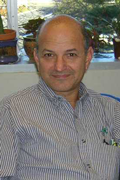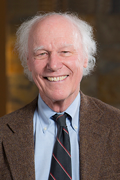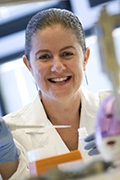Pre-conference
Pre-conference: Let’s Talk: Evidence, Experience and the Wisdom In the Room

Scott Parnell
PhD, Assistant Professor, Bowles Center for Alcohol Studies, Department of Cell Biology and Physiology, University of North Carolina, Chapel Hill, NC, USA
The Synergistic Effects of Cannabinoids and Alcohol on Birth Defects in Mice and Zebrafish
Dr. Parnell received his undergraduate degree from Texas A&M University. He stayed at Texas A&M to complete his Ph.D. under the mentorship of Dr. James West. He then went on to a post-doctoral fellowhip at the University of North Carolina in the laboratory of Dr. Kathy Sulik. Following his post-doctoral fellowship, Dr. Parnell took a faculty position at UNC where his laboratory continues to study the mechanisms and genetic susceptibilities underlying the effects of prenatal drug exposure.
Topic 1: Research with Animal Models: Inflammation and the Immune System

Tamara Bodnar
PhD, Post-Doctoral Fellow, Cellular and Physiological Sciences, University of British Columbia, Vancouver, BC, Canada
Tamara Bodnar is a postdoctoral fellow in the department of Cellular and Physiological Sciences at the University of British Columbia, supervised by Dr. Joanne Weinberg. Her research examines the impact of prenatal alcohol exposure on immune function across development in both humans and animal models. The overall goal of her research is to identify both immune-related biomarks and targets for possible immune-based interventions for individuals with FASD.

Paul D. Drew
PhD, Professor, Department of Neurobiology and Developmental Sciences, University of Arkansas for Medical Sciences, Little Rock, AR, USA
Paul D. Drew, Ph.D., is Professor and Vice Chair, Department of Neurobiology and Developmental Sciences, University of Arkansas for Medical Sciences. He received his Ph.D. from the University of Maryland and postdoctoral training at the National Institutes of Health. Dr. Drew’s research investigates the molecular mechanisms by which ethanol induces neuroinflammation in animal models of FASD, and evaluates the potential of anti-inflammatory therapeutics for the treatment of FASD. This work is funded by NIAAA.

Molly Goodfellow
PhD, Post-Doctoral Fellow, Department of Anesthesiology, University of Maryland School of Medicine, Baltimore, MD, USA
Molly Goodfellow received her B.A. in psychology and statistics from the University of Minnesota-Morris. In 2011, she joined the lab of Dr. Derick Lindquist at The Ohio State University where she completed her PhD in behavioral neuroscience, studying the etiology of learning and memory impairments in a rat model of FASD. She is currently a postdoctoral fellow at the University of Maryland-Baltimore in the Department of Anesthesiology.
Topic 2: Brain Sciences – Imaging & Neuro Psychology

Jeff Wozniak
PhD, Associate Professor, Pediatric Neuropsychologist, Fetal Alcohol Spectrum Disorders Research Program, University of Minnesota, Minneapolis, MN, USA
Dr. Wozniak is an Associate Professor, a Pediatric Neuropsychologist, and the director of the University of Minnesota’s Fetal Alcohol Spectrum Disorders research program. He works clinically with children and adolescents with a range of neurodevelopmental disorders. For the past 12 years, he has conducted research on FASD including MRI studies examining the neural correlates of FASD as well as treatment trials testing nutritional and neuromodulation interventions in FASD. Dr. Wozniak also oversees one of the clinical sites in the Collaborative Initiative on Fetal Alcohol Spectrum Disorders (CIFASD).

Claire D. Coles
PhD, Professor, Department of Psychiatry and Behavioral Sciences and Pediatrics, Emory University School of Medicine, Atlanta, GA, USA
Claire D. Coles, Ph.D., is Professor of Psychiatry and Behavioral Sciences and Pediatrics at Emory University School of Medicine, Atlanta, Georgia, and Director of the Center for Maternal Substance Abuse and Child Development (MSACD). Dr. Coles’ research on the developmental and behavioral effects of prenatal exposure to drugs and alcohol and on the interaction of these effects with the postnatal environment began in 1980 and was among the first to describe many behavioral effects of prenatal exposure in infants, young children and adolescents as well as the effects on brain in young adults. In 1995, Dr. Coles established the only multidisciplinary clinic in the Southeastern United States providing specialized services to individuals prenatally exposed to drugs and alcohol. Currently this Emory Neurobehavior and Exposure Clinic (ENEC) serves more than 200 new patients a year, providing differential diagnosis and behavior evaluation, referral, psychotherapy and educational services. Dr. Coles and her colleagues have created two empirically validated, manualized treatment programs for alcohol-affected children, MILE and GoFAR. Dr. Coles work has received national and international attention through the publication of numerous articles and books on these topics.

Paul D. Connor
PhD, Neuropsychologist, Private Practice; and Courtesy Clinical Assistant Professor, Fetal Alcohol and Drug Unit, University of Washington, Seattle, WA, USA
Dr. Paul Connor is a clinical and forensic neuropsychologist who is a licensed psychologist in the states of Washington and Oregon. He received post-doctoral training in neuropsychology and Fetal Alcohol Spectrum Disorders (FASD) at the University of Washington. For over 13 years, he conducted research focusing on the effects of prenatal alcohol exposure as it pertains to neuropsychological and mental health functioning and the structural and functional brain anomalies often seen in these disorders. Dr. Connor has authored or co-authored nearly 20 peer reviewed manuscripts and 3 book chapters focusing on the neuropsychological, neuroimaging, and psychiatric implications of the long term effects of prenatal alcohol exposure into adolescence and adulthood. Dr. Connor continues to be a Clinical Assistant Professor in the Department of Psychiatry and Behavioral Sciences’ Fetal Alcohol and Drug Unit (FADU) at the University of Washington. He is currently in private practice, conducting neuropsychological evaluations in clinical and forensic settings, utilizing a battery of tests that have been shown to be sensitive to the effects of prenatal alcohol exposure in over 30 years of research on this subject.
Topic 3: Addiction in Adults with FASD

Dan Dubovsky
MSW, FASD Specialist, Philadelphia, PA, USA
Dan Dubovsky has worked for over 40 years in the field of behavioral health, as a child care worker in residential treatment, and as therapist in residential treatment, inpatient, outpatient, and community settings. Dan has presented in the US and internationally on FASD for over 20 years focusing on interventions for children, adolescents and adults. His son Bill, diagnosed with fetal alcohol syndrome at age 19, has been his mentor and best teacher.

Brenda Knight
Registered Psychologist, Private Practice, Vancouver, BC, Canada
Brenda M. Knight is a Registered Psychologist (#694) in Private Practice in Vancouver, BC. Over thirty-five years she has developed expertise as a psychotherapist and counsellor for individuals and families who are adjusting to living with the complexities of FASD such as physical and mental health issues. She has a clinical and experiential understanding of their unique behavioural, psychological needs as birth, foster and adopted individuals. As an FASD Mental Health Specialist and Consultant, she has developed approaches to teaching professionals the skills to meet the unique communication challenges that need to be recognized in providing care to individuals and families who are diverse and at different developmental stages. Due to the nature of her practice she has been fortunate to accompany many of her clients with FASD through all developmental stages. Brenda Knight is respected as a mentor and trainer to professionals who are now working in the field of FASD and is a well-respected speaker at national and international conferences and training workshops.
Topic 4: Current Thinking and Social Change

Peter Choate
PhD, Associate Professor, Social Work, Mount Royal University, Calgary, AB, Canada
Dr. Choate has assessed parents for the child protection in Alberta. Including parents with FASD and related disabilities. He has served as an expert witness in over 150 cases in Alberta. His experience has included working with FASD parents on a therapeutic basis including addressing addiction, mental health and criminogenic behaviors.
As author:
Choate, P. (2013). Parents with Fetal Alcohol Spectrum Disorder in the child protection system: Issues for parenting capacity assessments. First Peoples Child and Family Review Journal, 8 (1), 81-92.
As co-author:
Badry, D.E., & Choate, P.W. (2015). Fetal Alcohol Spectrum Disorder: A Disability in Need of Social Work Education, Knowledge and Practice. Journal Social Work & Social Sciences Review, 17(3), 20-32 He has served as a member of the Alberta Child Intervention panel in 2017/2018.
Other recent publications:
Choate, P. & Lindstrom, G. (2018a). Parenting Capacity Assessment as a Colonial strategy. Canadian Family Law Quarterly, 37, 41-59.
Choate, P. & Lindstrom, G. (2018b). Inappropriate application of Parenting Capacity Assessments in the child protection system. Prairie Child Welfare Consortium. Regina, SK: University of Regina Press (In Press).
Choate, P. & McKenzie, A. (2015). Psychometrics in Parenting Capacity Assessments: A problem for Aboriginal parents. First Peoples Child and Family Review, 10 (2), 31-43. http://journals.sfu.ca/fpcfr/index.php/FPCFR/article/view/249.
Lindstrom, G. & Choate, P. (2016). Nistawatsiman: Rethinking assessment of Aboriginal parents for child welfare following the Truth and Reconciliation Commission. First Peoples Child and Family Review, 11 (2), 45-59. http://journals.sfu.ca/fpcfr/index.php/FPCFR/article/view/305

Christine Loock
MD, FRCPC, Associate Professor, Department of Pediatrics, University of British Columbia; Responsive Intersectoral Community Health, Education, and Research (RICHER) Initiative, BC Children’s Hospital & Sunny Hill Health Centre for Children, Vancouver, BC, Canada
Christine Loock MD, FRCPC, is a developmental pediatrician at Children’s and Women’s Health Centre of British Columbia, including Sunny Hill Health Centre for Children and BC Children’s Hospital where she is medical director of the Cleft Palate Craniofacial Program and specialist lead for the Social Pediatrics RICHER Program. A distinguished teacher and clinical researcher, she is an Associate Professor in the Department of Pediatrics, Faculty of Medicine, University of British Columbia (UBC). She is co-author of the Canadian National Guidelines for Diagnosis of Fetal Alcohol Spectrum Disorders and an alumni board member of the Canadian Centre on Substance Abuse.
Her collaborative interdisciplinary research to practice partnerships with UBC School of Nursing [Lynam et al] has pioneered the development of innovative and effective ‘RICHER’ health service delivery models for socially vulnerable children and families in Canada. In 2015, she was the recipient of the BC Pediatric Society Judith Hall Award for Advocacy, She is a finalist for the YWCA Women of Distinction Award for Health and Wellness (2017/2018). Her RICHER Social Pediatrics Team was recently presented with the prestigious John F. McCreary prize for Interdisciplinary Teamwork at the 2017 UBC Health Awards. Dr. Loock is a recipient of the 2012 Queen’ Diamond Jubilee Medal for community service awarded by the Governor General of Canada.
Main Conference

Sara Jo Nixon
PhD, Professor, Departments of Psychiatry and Psychology; Co-Vice Chair, Department of Psychiatry; Co-Director, Center for Addiction Research and Education; Co-Director, NIDA T32; Chief, Division of Addiction Research; Director, Neurocognitive Laboratory; University of Florida, Gainesville, FL, USA
Understanding How “Executive Function” IS “Everyday Function”
Dr. Sara Jo Nixon is a Professor in the Department of Psychiatry at the University of Florida where she also serves as a Co-Vice Chair (Research) and Chief, Division of Addiction Research. She and her team have long history of conducting programmatic clinical research regarding the neurobehavioral and psychosocial concomitants of substance use/misuse using methods ranging from individual and group interviews to neurocognitive tests to neuroimaging methods. She and her team have a continuing interest in individual differences including family history, race/ethnicity, age, sex/gender, and comorbid conditions. Much of her work is directed to understanding the component processes underlying higher cognitive or executive function/processes and encouraging study of functional efficiency rather than limiting study to clinical impairment. Dr. Nixon is widely published and has received funding from a host of federal, state and private foundations including substantive current funding from the NIAAA and NIDA. Dr. Nixon is a past-president of the Research Society on Alcoholism as well as the Society of Addiction Psychologists (APA Div. 50). She is Chair of the American Psychological Association’s Board of Scientific Affairs and serves on several additional scientific advisory boards including the Collaborative Initiative for FASD.
Will Diagnostic Systems for FASD in Children Work in Adults?

Jonathan Down
MB, BS, MHSc, DCH, FRCPC, Developmental Paediatrician, Queen Alexandra Centre for Children’s Health, Victoria, BC, Canada
Dr. Jonathan Down is the Developmental Paediatrician for Island Health Authority based in Victoria, and a Clinical Assistant Professor in the Faculty of Medicine, UBC. He graduated from St Bartholomew’s Hospital Medical College, University of London. After several years in general paediatrics, sub-specialty training was completed at BC Children’s Hospital. Special interests include children, adolescents and recently adults with a history of prenatal alcohol exposure and other risk factors. He is President of Whitecrow Village FASD Society.

Jocelynn Cook
PhD, MBA, Chief Scientific Officer, The Society of Obstetricians and Gynaecologists of Canada; Diagnostics Research Lead, Canada FASD Research Network; Adjunct Professor, University of Ottawa, Ottawa, ON, Canada
Jocelynn L. Cook, PhD, MBA, is the first Scientific Director of the Society of Obstetricians and Gynaecologists of Canada and oversees all work related to Continuing Medical Education, Clinical Practice Guidelines, Research, Accreditation, Global Health and Indigenous Health. Her professional career has focused on issues related to maternal-fetal medicine; specifically, substance abuse during pregnancy, preterm birth, Fetal Alcohol Spectrum Disorder (FASD) and Assisted Human Reproduction. Dr. Cook is an Adjunct Professor to the department of Obstetrics and Gynecology at the University of Ottawa, appointed in 2002.

R. Colin Carter
MD, MMSc, Assistant Professor, Institute for Human Nutrition and Departments of Pediatrics and Emergency Medicine, Columbia University Medical Center, New York, NY
Dr. Carter studied medicine at Johns Hopkins University where he took a year from his studies to work with Sandra and Joseph Jacobson on their Cape Town Longitudinal Cohort study. After completing his clinical training in Pediatrics and Pediatric Emergency Medicine at Boston Children’s Hospital, Dr. Carter worked with Drs. S. and. J. Jacobson to study the impact of maternal nutrition in FASD in their new Cape Town Longitudinal Cohort. Using data from Cape Town and Detroit, the focus of Dr. Carter’s work has been fetal alcohol growth restriction, alcohol-related alterations in maternal and infant iron homeostasis in FASD, and the impact of maternal prenatal nutrition.

Kenneth Jones
Dr. Kenneth Lyons Jones is a Distinguished Professor and Chief of the Division of Dysmorphology and Teratology in the Department of Pediatrics, School of Medicine at the University of California San Diego.
Since first describing the fetal alcohol syndrome in 1973 with David W. Smith, M.D., Dr. Jones has made extensive contributions to the prevention, improved diagnosis, and treatment of fetal alcohol spectrum disorders (FASD) through his research efforts and clinical care.
DOHAD: Metabolic Symposium – Updates in Animal and Human Research

Susan Smith
PhD, Nutrition Research Institute, University of North Carolina at Chapel Hill, Kannapolis, NC, USA
Does Prenatal Alcohol Exposure Increase Offspring Risk for Metabolic Syndrome? Metabolic Assessment in moderate PAE Mouse Mode
Dr. Susan Smith is Deputy Director for Science and Professor of Nutrition at the UNC-Nutrition Research Institute in Kannapolis NC. Her research investigates nutritional interactions with FASD, including both its causative influences and its subsequent impact upon nutrient needs. Her lab team also studies the molecular mechanisms that underlie alcohol’s gestational damage. Her research into FASD is recognized by an NIH MERIT award and appointment to NIAAA’s External Advisory Council.

Karen Moritz
PhD, Professor, Research Fellow, School of Biomedical Sciences and Child Health Research Centre, The University of Queensland, Brisbane, Australia
Prenatal Alcohol Exposure and Metabolic Disease in Adulthood: Evidence From Animal Models
Professor Karen Moritz is a Senior Research Fellow in the School of Biomedical Sciences and Director of the Child Health Research Centre at the University of Queensland. The aim of her work is to understand how prenatal perturbations contribute to an increased risk of developing cardiovascular, renal and metabolic disease in adulthood. Over the last 5-7 years, her research has focused on determining how prenatal alcohol can result in “developmental programming” of adult disease. Her research has identified critical windows of susceptibility to alcohol including the period prior to implantation. In addition, her work has identified the placenta as playing a key role in the sex specific outcomes seen following maternal perturbations.

Jeff Wozniak
PhD, Associate Professor, Pediatric Neuropsychologist, Fetal Alcohol Spectrum Disorders Research Program, University of Minnesota, Minneapolis, MN, USA
Associations Between Prenatal Alcohol Exposure, Behavior, Diet, and Obesity
Dr. Wozniak is an Associate Professor, a Pediatric Neuropsychologist, and the director of the University of Minnesota’s Fetal Alcohol Spectrum Disorders research program. He works clinically with children and adolescents with a range of neurodevelopmental disorders. For the past 12 years, he has conducted research on FASD including MRI studies examining the neural correlates of FASD as well as treatment trials testing nutritional and neuromodulation interventions in FASD. Dr. Wozniak also oversees one of the clinical sites in the Collaborative Initiative on Fetal Alcohol Spectrum Disorders (CIFASD).

Olivia Weeks
PhD Candidate, Developmental and Regenerative Biology Program, Harvard Medical School, Boston, MA USA; Goessling Laboratory, Department of Genetics, Brigham and Women’s Hospital, Boston, MA, USA
FASD in Adulthood: Insights on Metabolic Syndrome Risk from Zebrafish Models
Olivia is a graduate student in Developmental and Regenerative Biology at Harvard Medical School. She received her B.A. in Organismic and Evolutionary Biology from Harvard University in 2013 after completing a senior thesis on alligator tooth development in the laboratory of Dr. Arkhat Abzhanov. In 2014, she joined Dr. Wolfram Goessling group where she studies liver development and the impact of fetal alcohol exposure on chronic adult disease.
Community Based Research Starts with the Community: On Effective and Ethical Practices for “Patient-Oriented” and Collaborative Research with Families and Individuals with FASD

Dorothy Reid
MA, Co-chair, Family Advisory Committee, CanFASD Research Network, Abbotsford, BC, Canada
Dorothy Reid is the owner of Reid Wellness Consulting, and is also the Co-Chair for the Family Advisory Committee with CanFASD. Dorothy worked in mental health service development and delivery in the Correctional System. She has professional experience working with individuals with FASD and other mental health concerns. After obtaining an FASD diagnosis for their two sons, Dorothy and her husband have been involved in developing support groups for parents and caregivers of children with disabilities.

Lisa Brownstone
BScOT, MSc, Parent, Community Health and Epidemiology; Board Member, CanFASD Research Network, Regina, SK, Canada
Lisa Brownstone is a retired Occupational Therapist with a Master’s degree in Community Health and Epidemiology. She has a long history working with people with FASD. She is a parent and caregiver to family members with FASD. She has been involved in assessments and interventions for people with concurrent disorders including FASD, intellectual disability, childhood trauma and mental health illnesses. She has also authored studies, developed and evaluated mentoring and support programs focused on FASD.

Michelle Stewart
PhD, Associate Professor, Justice Studies, University of Regina, Regina, SK, Canada
Dr. Michelle Stewart is an Associate Professor of Justice Studies at the University of Regina. Her work focuses on FASD and social justice. Michelle is the Strategic Research Lead for Justice Interventions with Canada FASD Research Network. She is involved in a number of patient-oriented and community-based research projects and mentored faculty members and students about different approaches and methods for community-engagement. She is an applied social scientist with projects in Canada, N. Ireland and Australia.

Niall Schofield
Research Team Member, Public Speaker with Lived Experience, Martensville, SK, Canada
Niall has known he lives with FASD his whole life. After years of struggling with his disability, Niall has accepted the fact that he lives on the spectrum and is now taking action to help others. By sharing his personal experiences at conferences and events across Canada. Niall is motivated to empower other individuals living with FASD to find hope and strength within their disability.
FASD and the Criminal Justice system: Making the Case for Research to Build Evidence-Based Policy Response

Kaitlyn McLachlan
MA, PhD, Assistant Professor, Department of Psychology, University of Guelph, Guelph, ON, Canada/em>
Dr. Kaitlyn McLachlan is an Assistant Professor in the Department of Psychology at the University of Guelph, and an adjunct faculty member in the Department of Psychiatry and Behavioural Neurosciences at McMaster University. She is also a Research lead with the Canada FASD Research Network. Dr. McLachlan’s research and clinical interests focus on the intersection of vulnerable individuals in the justice system, and in particular, on youth and adults with fetal alcohol spectrum disorder. She completed her doctoral degree in clinical psychology with a forensic specialization at Simon Fraser University, followed by a postdoctoral fellowship at the University of Alberta and University of British Columbia as a fellow of Kids Brain Health Network. Dr. McLachlan has numerous peer reviewed publications, and has been the recipient of a prestigious Banting Research Foundation Discovery Award for her research along with the Canada FASD Research Network Sterling Clarren Award. Her scholarly and clinical activities focus on the development and translation of evidence to inform effective policy responses in the criminal justice system and more broadly.

Mansfield Mela
MBBS, FWACP, FRCPsych, MSc. Psych, FRCPC
Dr. Mela is a Professor and Forensic Psychiatrist in the Department of Psychiatry, College of Medicine, at the University of Saskatchewan. In addition to the Forensic Psychiatry Outpatient Clinic at the Royal University Hospital, he works as the adult diagnostic Physician at Lakeland Centre for FASD, a consulting Psychiatrist at the Regional Psychiatric Centre as well as the Central Urban Métis Federation day clinic. He is the Co-Lead of the Diagnostic Research Team for the CanFASD Research Network. His research focuses on psycholegal aspects of forensic mental health, with specific interests and expertise in FASD.

Joanna Wells
LLB, Legal Counsel, Department of Justice Canada, Criminal Law Policy Section, Ottawa, ON, Canada
Joanna Wells has been legal counsel in the Criminal Law Policy Section at the Department of Justice since 2008. She provides legal and policy advice to the Minister of Justice on a variety of criminal law issues, including mental health and FASD.

Corey La Berge
MA, LLB, Cranbrook, BC, Canada
Corey has been working with children and adults with FASD for more than 20 years. This has included working as a cultural anthropologist, a lawyer, and a registered social worker. He has conducted academic and community-based research and project evaluation; volunteered for 8 years as the inaugural Chairperson of FASD Life’s Journey; worked as Accommodation Counsel for Youth Living with FASD with Legal Aid Manitoba; and served as Manitoba’s Deputy Children’s Advocate.